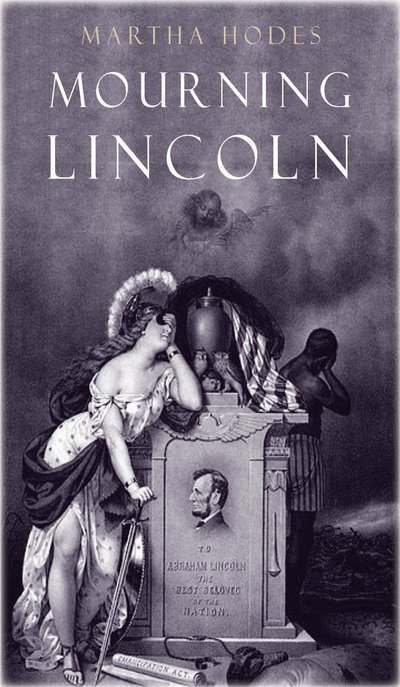

Purchase
Yale University Press
March 2015
On Sale: February 24, 2015
408 pages
ISBN: 030019580X
EAN: 9780300195804
Kindle: B00SVDZCYM
Hardcover / e-Book
Add to Wish List
Non-Fiction History
The news of Abraham Lincoln’s assassination on April 15,
1865, just days after Confederate surrender, astounded the
war-weary nation. Massive crowds turned out for services and
ceremonies. Countless expressions of grief and dismay were
printed in newspapers and preached in sermons. Public
responses to the assassination have been well chronicled,
but this book is the first to delve into the personal and
intimate responses of everyday people—northerners and
southerners, soldiers and civilians, black people and white,
men and women, rich and poor. Through deep and thoughtful exploration of diaries, letters,
and other personal writings penned during the spring and
summer of 1865, Martha Hodes, one of our finest historians,
captures the full range of reactions to the president’s
death—far more diverse than public expressions would
suggest. She tells a story of shock, glee, sorrow, anger,
blame, and fear. “’Tis the saddest day in our history,”
wrote a mournful man. It was “an electric shock to my soul,”
wrote a woman who had escaped from slavery. “Glorious News!”
a Lincoln enemy exulted. “Old Lincoln is dead, and I will
kill the goddamned Negroes now,” an angry white southerner
ranted. For the black soldiers of the Fifty-Fourth
Massachusetts, it was all “too overwhelming, too lamentable,
too distressing” to absorb. There are many surprises in the story Hodes tells, not least
the way in which even those utterly devastated by Lincoln’s
demise easily interrupted their mourning rituals to attend
to the most mundane aspects of everyday life. There is also
the unexpected and unabated virulence of Lincoln’s northern
critics, and the way Confederates simultaneously celebrated
Lincoln’s death and instantly—on the very day he died—cast
him as a fallen friend to the defeated white South. Hodes brings to life a key moment of national uncertainty
and confusion, when competing visions of America’s future
proved irreconcilable and hopes for racial justice in the
aftermath of the Civil War slipped from the nation’s grasp.
Hodes masterfully brings the tragedy of Lincoln’s
assassination alive in human terms—terms that continue to
stagger and rivet us one hundred and fifty years after the
event they so strikingly describe.
Comments
No comments posted.
Registered users may leave comments.
Log in or register now!
| 


 © 2003-2025 off-the-edge.net
all rights reserved Privacy Policy
© 2003-2025 off-the-edge.net
all rights reserved Privacy Policy